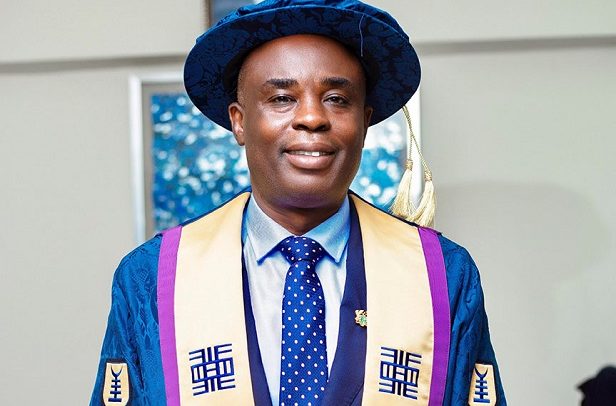Vice-Chancellor of UPSA, Professor Abednego F.O. Amartey
The University of Professional Studies, Accra (UPSA), has been accredited by the Ghana Tertiary Education Commission (GTEC) to run a Doctor of Philosophy (PhD) in Accounting programme in the Faculty of Accounting and Finance and five others.
A statement issued by the Director in charge of Public Affairs of the institution, Aba Lokko said the other newly accredited programmes are MPhil Accounting, MBA Corporate Communications, MSc Procurement Management, Postgraduate Dipioma in Leadership and Organisational Development, and MSc Pensions Management.
She said the introduction of these new programmes attest to the commitment of the university to respond to current and anticipated future national needs of our country.
She added that the accreditation of the PhD programme in Accounting was welcome news for the university.
“The accreditation of our PhD in Accounting programme is exciting news and places UPSA as the second university in Ghana to offer this programme. UPSA is committed to continuously developing and rolling out forward-looking, market-driven programmes which add value to the industry and the nation,” she quoted the Vice-Chancellor, Professor Abednego F.O. Amartey, as saying.
She pointed out that the Vice Chancellor believes that the college has demonstrated evidence of “the quality of our programmes through our graduates who hold key positions in industry.”
The UPSA PhD in Accounting programme will provide students with a comprehensive theoretical and practical knowledge in Accounting and related areas, as well as develop their abilities to conduct analytical and empirical research in Accounting.
The programme is designed to enhance the capacity of those with specialisations in areas such as Public Sector Accounting and Finance, Integrated Reporting, Advanced Audit and Assurance, including Taxation and Fiscal Policy.
The PhD in Accounting programme, she said, targets both local and foreign applicants and with these new programmes, UPSA has increased its programme portfolio from 20 to 36 since 2017, representing an 80% increase.
By Linda Tenyah-Ayettey


